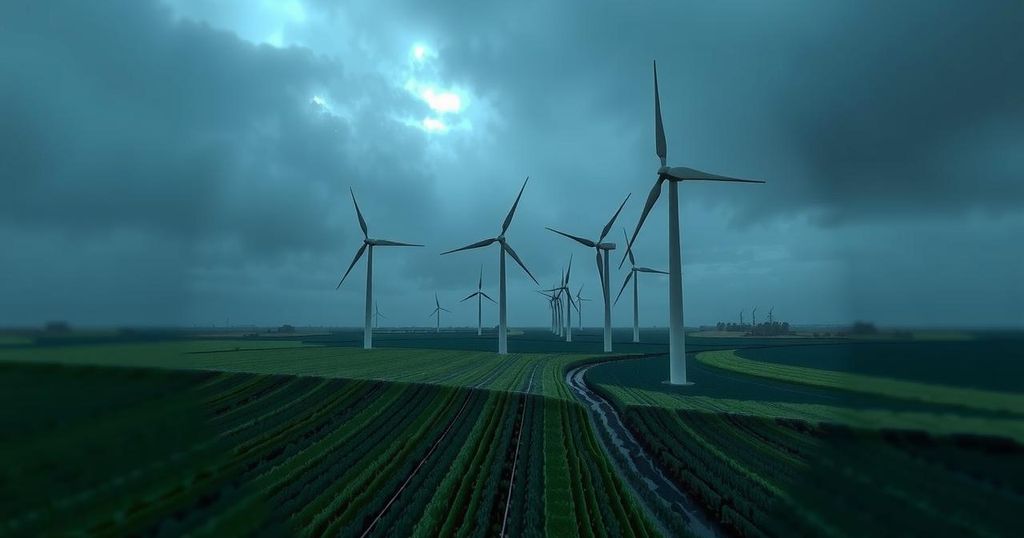Impact of Mild Weather and Wind Energy on Gas Prices in the Netherlands and United Kingdom
Dutch and British gas prices have decreased due to above-average temperatures and increased wind power forecasts, providing relief in a previously tense market. The TTF hub’s front-month contract dropped to €39.40 per megawatt-hour, while British weekend contracts fell to 94.90 pence per therm. This price reduction occurs amid stable power plant consumption, although geopolitical tensions in the Middle East may still introduce complexities for the market’s future.
Recently, there has been a notable decline in natural gas prices within the Netherlands and the United Kingdom, attributed primarily to warmer than average temperatures and a rise in wind energy generation forecasts. This shift has introduced a measure of tranquility to a previously heightened market atmosphere. The increase in European temperatures has resulted in a diminished demand for gas, leading to a decrease in prices across major trading hubs. For example, the front-month contract at the Dutch Title Transfer Facility (TTF) decreased to €39.40 per megawatt-hour, while British weekend contracts fell to 94.90 pence per therm. In addition, it is anticipated that gas consumption by power plants will remain stable over the weekend, with a minor uptick in demand expected during the workweek, estimated at an increase of 88 GWh/d. However, it is pertinent to note that Norwegian gas exports are currently facing slight reductions due to extended maintenance schedules. In this context, the price disparity between Asian and European markets remains stable, offering little incentive for liquefied natural gas (LNG) exporters from the United States. Amidst these developments, geopolitical tensions, especially those surrounding the Middle East, continue to influence market dynamics significantly, introducing additional complexities into the scenario.
The European energy market has been experiencing fluctuations in response to a variety of factors including weather patterns and geopolitical tensions. Recently, above-average temperatures across the continent have successfully reduced gas demand, thereby impacting prices at key trading hubs. The integration of renewable energy sources such as wind power has been pivotal in altering the traditional reliance on gas. Understanding these changes in consumer demand and energy generation capabilities is critical for investors and market participants who need to navigate the evolving energy landscape. The interplay between energy sources coupled with global geopolitical issues can have profound implications on gas pricing and availability, necessitating a strategic approach to forecasting and investment.
In summary, the recent decline in Dutch and British gas prices underscores the significant impact of moderate weather conditions and increased wind power generation on energy demand. While this has provided temporary relief to market participants, the overarching influence of geopolitical tensions, particularly in the Middle East, remains a critical factor that could provoke further volatility in global gas supply and pricing. Investors are encouraged to closely monitor these developments as the energy landscape continues to evolve in response to environmental and geopolitical factors.
Original Source: finimize.com




Post Comment